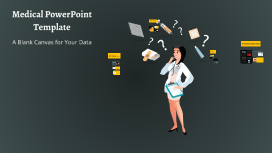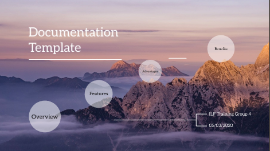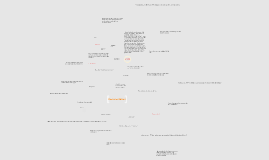Documentation
Transcript: Providing credit where credit is due Direct Quotations Paraphrase Summaries Arguments Ideas Should have more in-text citations than direct quotations How often should I cite my sources? When in doubt, every 2-3 sentences General or common knowledge does not require citation Anything you can find in the dictionary or encyclopedia is common knowledge All language taken directly from another source MUST be placed inside quotation marks Too many direct quotations is like a speed bump in your writing Use them only when the original language cannot be reworded without loss of meaning Use blocked quotations VERY sparingly No more than 2 Paraphrase whenever possible In-text citations “And so he sounded very intelligent” (Smith 1999). The truth is that the novel is a genre which resists exact definition. This in itself is not particularly striking, since many things—‘game’, for example, or ‘hairy’—resist exact definition. It is hard to say how ape-like you have to be in order to qualify as hairy. The point about the novel, however, is not just that it eludes definitions, but that it actively undermines them. It is less a genre than an anti-genre. It cannibalizes other literary modes and mixes the bits and pieces promiscuously together. You can find poetry and dramatic dialogue in the novel, along with epic, pastoral, satire, history, elegy, tragedy and any number of other literary modes. (Eagleton 2005) Commas should always go inside quotation marks and double quotation marks should always be used, except for quotations within quotations. The Reference List Begins on a new page at the end of the body of the paper Each entry in the reference list corresponds to a citation included in the paper This is what distinguishes a reference list from a bibliography Article titles aren’t enclosed in quotation marks Titles of articles, books, chapters, essays, and articles are capitalized sentence-style, meaning only the first word of the title (and subtitle) is capitalized Only newspaper, journal, and magazine titles should be capitalized headline-style The date of publication should appear immediately after the author’s name Eagleton, Terry. 2005. The English novel: An introduction. Malden, MA: Blackwell Publishing Vickery, Amanda. 1999. From golden age to separate spheres? History Workshop Journal 55, 44-70 Allison, G. W. 1999. The implications of experimental design for biodiversity manipulations. American Naturalist 153 (1): 26-45. Reference lists should be alphabetized Second (and third or fourth) line(s) of entries should be indented Entries for books with more than one author should only reverse the first author’s name and the other names should be in conventional order Smith, Jonathan, and Giles Snyder. 2004. Civility in monkey behavior. New York: Primate Press Documentation

















